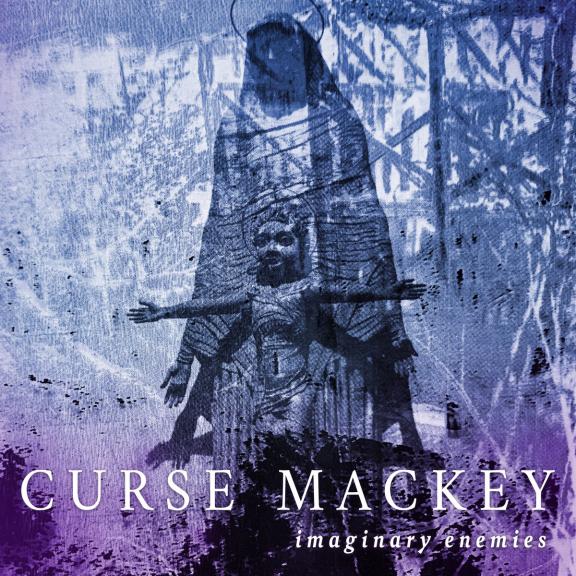Curse Mackey's career is not new, but his solo adventures are relatively recent. His first album released under his own name, Instant Exorcism, only dates back to 2019 (although he did release a track or two in the early 2000s). Since then, the artist who played with the supergroup Pigface and My Life with the Thrill Kill Cult has been bringing his electronic nightmares to life. Imaginary Enemies extends the explorations of the previous two albums: after the inner chaos of Instant Exorcism and the societal decay of Immoral Emporium, here's an album full of paranoia, grief, invisible monsters prowling in the darkness and inner spectres. Everything we love.
It's impossible not to have Curse Mackey's career in mind as Doomed for Monday begins: piles of samples, modular synths and, above all, that sinister, robotic scansion... A strong whiff of 90s Chicago, Wax Trax! Records and, of course, Canada's Skinny Puppy. We immediately appreciate the dreamy melancholy that is grafted onto this distressing psychedelic collage. Curse Mackey aknowledges his roots and modernises them, then takes us on a tour of his dark, tortured inner labyrinth.
The strength of Imaginary Enemies lies in the emotion the artist infuses into it, which haunts the more mechanical sounds. It's all about contrasts: the futuristic textures of Vertigo Ego blend with the hypnotic bass that gives it its timeless mystique; the bitterness of Blood Like Love (Killing Joke will appreciate the nod) is both counterbalanced and enhanced by a bittersweet, heady chorus; mournful vocals accompany the driving rhythms of Disoccult and Star Witness... Curse Mackey's attraction to the goth and darkwave scenes is regularly apparent, as in the post-punk ghosts that give Imaginary Enemies a more organic feel. All this contributes to giving the whole a soul, to making palpable the torments expressed by its author: these machines are overwhelmed by spleen and anguish.
Whereas the album opened with an apocalyptic quotation from the Bible, it ends with a requiem. Six Ghosts of Fear (Napoleon Hill called them the ‘six ghosts of fear’ - fear of poverty, criticism, sickness, loss of love, old age and death) blends poems by Edgar Allan Poe, Thomas Stearns Eliot and Emily Dickinson about war and death to create an epic, anxiety-inducing conclusion. To paraphrase and hijack Eliot's words, as the track spirals into a noisy finale evoking a cataclysmic collapse: this is the way Imaginary Enemies ends, with a bang, leaving us with nothing but the ruins to come, linking past atrocities to those present and future. Curse Mackey mixes intimate suffering with merciless commentary on the world. The result feels like a bad dream where time lost its meaning, something introspective and grandiloquent, mechanically cold and full of grieving souls.





